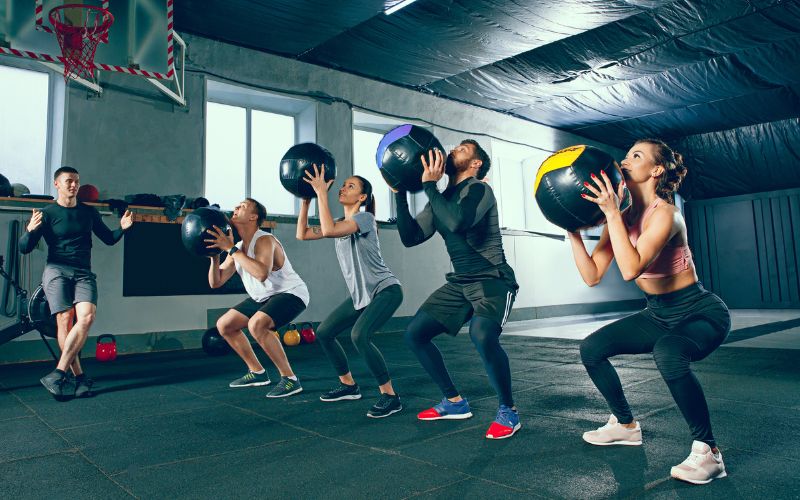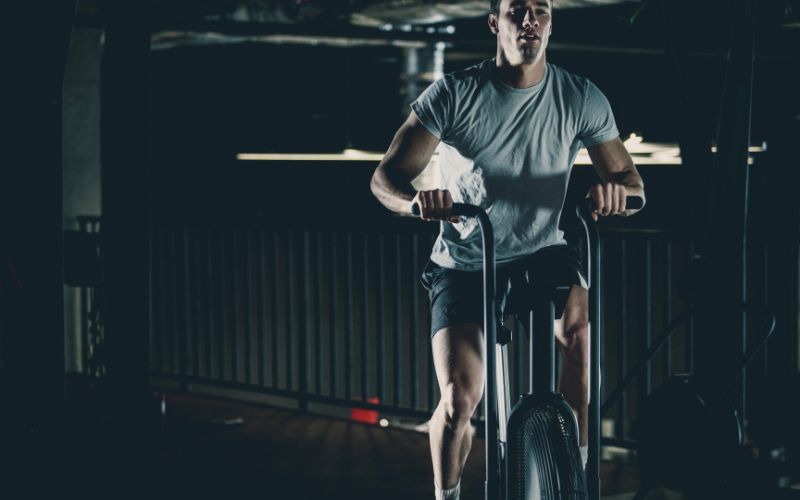In today’s ever-changing world, being prepared for any situation is more critical than ever. Whether you’re in the military, law enforcement, or simply someone who values self-reliance, tactical preparedness is a cornerstone of effective response in high-stress situations. One of the most effective ways to ensure you’re physically and mentally ready for these challenges is through functional fitness.
Functional fitness, a training philosophy focusing on exercises mimicking real-world movements, is vital in enhancing tactical readiness. Unlike traditional gym workouts, which often isolate specific muscle groups, functional fitness emphasizes whole-body movements that improve strength, agility, endurance, and coordination—all of which are essential for anyone looking to improve their tactical capabilities.
What Is Functional Fitness?

Before discussing the benefits, let’s clarify what functional fitness entails. Functional fitness exercises are designed to improve one’s ability to perform everyday activities. They typically involve multiple muscle groups and emphasize movement patterns replicating real-life scenarios. For example, squats, deadlifts, and kettlebell swings mimic the actions of lifting, carrying, and pushing heavy objects.
The goal is to build a body that can handle the physical demands of daily life and, more importantly, the unpredictable nature of tactical situations. Functional fitness isn’t about aesthetics; it’s about performance and durability.
Benefits Of Functional Fitness
Here are the ten benefits of functional fitness for tactical professionals. I have discussed each benefit in detail below.
1. Improved Physical Strength
One of the most apparent benefits of functional fitness is enhanced physical strength. However, the strength gained from functional fitness is more than just how much you can lift on a bench press or squat rack. It’s about developing strength that you can apply in real-world situations.
For instance, functional fitness training often involves carrying heavy objects, dragging weighted sleds, or lifting odd-shaped items. These activities build strength in a way directly applicable to tasks you might face in a tactical environment, such as carrying a wounded comrade, lifting heavy tactical gear, or overcoming physical obstacles.
2. Enhanced Agility And Coordination
Tactical situations often demand quick reactions and the ability to move efficiently in complex environments. Functional fitness is exceptional at improving agility and coordination through exercises requiring balance, rapid direction changes, and multi-planar movements.
Training routines often include agility drills, plyometrics, and dynamic stretching, all of which enhance your ability to move swiftly and precisely. This is particularly important in scenarios where you may need to navigate tight spaces, respond to sudden threats, or engage in hand-to-hand combat.
3. Increased Endurance And Stamina
Endurance is critical in any tactical situation. Whether on a long patrol, involved in an extended firefight, or simply dealing with the stress of a prolonged emergency, having the stamina with essential survival gear to keep going is essential.
Functional fitness training builds endurance by incorporating high-intensity interval training (HIIT), circuit training, and sustained cardio exercises. These methods are designed to push your cardiovascular system and muscular endurance to new levels, ensuring that you can maintain a high level of performance even under the most challenging conditions.
4. Enhanced Mental Toughness
Tactical preparedness isn’t just about physical capabilities; mental toughness is equally important. The cognitive challenges posed by functional fitness workouts, such as pushing through fatigue, dealing with discomfort, and staying focused during complex movement patterns, translate directly to the mental resilience needed in tactical situations.
Training your mind to stay calm under pressure, make decisions when tired, and maintain focus in chaotic environments can make the difference between success and failure. Through its intense and varied training protocols, functional fitness helps build this mental fortitude.
5. Improved Flexibility And Mobility
In tactical situations, being flexible and mobile can be as important as being strong, especially when using the right tactical tools. Functional fitness often incorporates stretching, yoga, and mobility drills that enhance your range of motion and reduce the risk of injury.
Improved flexibility and mobility allow you to move more freely and efficiently, which is crucial when you need to perform actions like crawling through narrow spaces, ducking under obstacles, or quickly getting into and out of different positions. This aspect of functional fitness is often overlooked, but it’s essential for maintaining long-term tactical readiness.
6. Reduced Risk Of Injury
Injuries can sideline you at the worst possible time, making injury prevention a top priority for anyone concerned with tactical preparedness. Functional fitness is specifically designed to build strength and flexibility in a way that protects against common injuries.
Functional fitness helps create a balanced and resilient body by focusing on whole-body movements and strengthening and stabilizing muscles. This training reduces the likelihood of sprains, strains, and other injuries that could impair your ability to respond in a crisis. However, Medical kits and tourniquets are essential for managing injuries and ensuring you’re always prepared.
7. Real-World Application
One of the primary reasons functional fitness is so effective for tactical preparedness is its focus on real-world application. The exercises mimic the movements you would perform in tactical scenarios, making the transition from training to real-life action seamless.
For example, farmers’ carries replicate carrying heavy gear, while box jumps simulate the explosive power needed to vault over obstacles. This practical approach to fitness ensures that your training directly enhances your ability to perform in the field.
8. Adaptability And Versatility
Tactical situations are unpredictable, requiring quick adaptation to new challenges. Functional fitness prepares you for this by promoting adaptability and versatility in your training.
Since functional fitness often includes a variety of exercises that target different muscle groups and movement patterns, it builds a body capable of handling a wide range of physical tasks. This versatility is invaluable in tactical situations where you may need to switch from one type of movement to another without missing a beat.
9. Better Weight Management
Maintaining a healthy weight is crucial for tactical readiness, as excess body weight can slow you down and decrease your endurance. Functional fitness effectively manages your weight by combining strength training with cardio, ensuring you burn calories while building lean muscle mass.
Regular functional fitness training helps you achieve and maintain an optimal weight, improves your overall health, and makes you more effective in any tactical scenario, especially when managing your tactical loadout efficiently.
10. Holistic Health And Well-being
Finally, functional fitness contributes to overall health and well-being, which is the foundation of tactical preparedness. Regular functional fitness training improves physical capabilities, boosts the immune system, reduces stress, and enhances mental clarity.
A well-rounded approach to fitness ensures that you’re strong and capable but also healthy and resilient. This holistic health is vital for maintaining peak performance over the long term, especially in high-stress environments.
Conclusion
Incorporating functional fitness into your routine is one of the best ways to enhance your tactical preparedness. Its benefits—from improved strength and agility to increased endurance and mental toughness—make it an essential component of any training regimen focused on readiness for real-world challenges.
By emphasizing movements and exercises that replicate the physical demands of tactical situations, functional fitness ensures that you’re physically fit and capable of performing at your best when it matters most. Whether you’re a first responder, military personnel, or someone who values being prepared, functional fitness can help you build the strength, stamina, and resilience needed to handle whatever comes your way.





